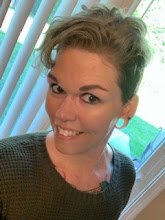In many ways, electronic editing (this vision of it) is exactly what we're told as scholars to privilege and practice: interpretation. The beauty of reading anything is the (maybe the absence of the author but mostly the) control we have over how it makes us feel - how we see it - our *way of seeing.* But along with both consensus as well as multiple ways of seeing is the effort for inclusion. Smith's emphasis on bringing more eyes to the text and more minds to the table is very much an underlying behavior/principle/viewpoint that is needed within academe. We are well aware that the structure of higher education, graduate study, and academe writ large is based on a hierarchy that at times makes sense but at times also threatens the very fabric of what we set out to do. The exclusivity of many elements of our profession can (and arguably does) stand in the way of the advancement of knowledge but the underlying principles of electronic scholarly editing stand to offer us a guide for the future of scholarship and the university. The more inclusive nature of a future (even more) digital humanities also, as Smith states, turns
"...the editorial process inside out in order to advance its integrity, its scope, and its reach, as is the choreography of guest co-editors working with a group of general editors."
I think the biggest take-away here is the call for collaborative efforts especially by scholars who also teach their undergraduate students the benefits of collaboration with their peers. It seems as though scholars have lived a double-life – on the one hand asking their students to engaged in the collaborative affordances of the technology, while secretly shunning it for their own scholarly endeavors. The digital humanities can eliminate (largely) the egotistical nature of scholarship while addressing the encroaching economic realities of our current practices. It’s a win-win, is it not?
-----
I want to include a little bit of freewriting I did last night after reading the line about Blogger being the first blog platform/software/tool to hit the 'net. It made me go back and find out just when Livejournal began because I remember having a Livejournal a LOOONNNGGG time ago (and it felt like it was pre-2000). So, here's a bit of what I wrote on that topic:
Livejournal and selecting a readership/being part of a community. The exclusivity of livejournal (which I should mention pre-dates blogger by nearly a year) and the credit that came along with early-adoption, made it a stronger blog format than Blogger. Perhaps Blogger can be seen as a territory that belonged to people who were “serious” about the implications and future of online publishing – those folks who eventually came to call themselves “bloggers” and attempt (and sometimes succeed) at making a living with the title. But we know that self-proclaimed “bloggers” do not make money as writers, but as popularity contest winners who sell advertisements. They do not sell their writing – they sell advertising space based on “hits.” I do not refuse to give credit to bloggers because I’m bitter at their success, but because I see what they do as different than what it means to actually publish a work – scholarly or not, electronic or not.
But livejournal was the ultimate popularity contest. The number of followers you had on livejournal gave you credit – and people would follow you simply based on how many followers you had. The more followers, the more people saw your writing and the further the news would spread of what it was you had to say. For all of my time in the “livejournal community” and all of the writing I posted (not published), I never had a concern for copyright – I never worried about someone else taking my writing and making it their own. It’s not that I didn’t think what I had to say was valuable, but instead it was because I could control the readership. With public, private, and friends “groupings,” I could allow my trust to be the driving force behind what I wrote.
As we well know, blogs have the same capability of choosing an audience – not only in the rhetorical sense, but *actually* selecting the audience. This leads me to wonder about the role not only of collaboration and participation, but of audience as it relates to writer/editing intention. Seeking to publish academically online does call into question elements of access (JSTOR, etc), but not from the author’s writerly perspective/intention – only from what the publication chooses to do after it owns the work.

No comments:
Post a Comment